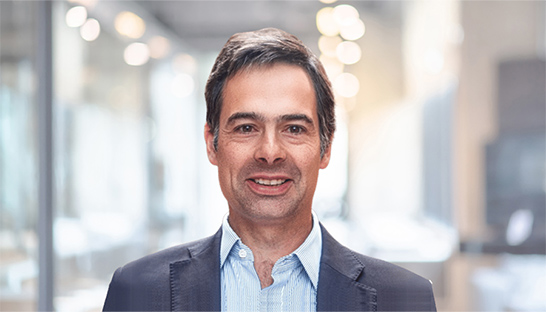- PE 150
- Posts
- PE Exits Stretch, CapVest’s €10B Pharma Play, and the Semiliquid Fund Surge
PE Exits Stretch, CapVest’s €10B Pharma Play, and the Semiliquid Fund Surge
Hedge funds have evolved far beyond their original mandate, transforming into data-driven intelligence engines.
Good morning, ! This week we’re covering why PE exits are stretching to decade highs, CapVest’s blockbuster €10bn pharma buyout, the rise of semiliquid funds as a new fundraising channel, and how Gross Capital Formation is reshaping emerging market playbooks.
Join 50+ advertisers who reach our 400,000 executives: Start Here.
Know someone who would love this? Pass it along—they’ll thank you later! Here’s the link.
DATA DIVE
Hedge Funds Are Now Intelligence Firms

Gone are the days when hedge funds simply hedged. Today’s top performers operate like data companies in asset manager clothing. Think machine learning pipelines, alternative datasets, and intraday stress testing running in parallel to human-led macro calls. The result? Nearly $3.1T in AUM—and $37.3B in new inflows in just H1 2025. This isn’t performance-chasing; it’s non-correlation hunting. And allocators aren’t spreading chips—they’re stacking them on multi-strategy, multi-billion platforms. Firms like Discovery Capital (+52% YTD) and Light Street Capital (+59.4%) are the new blueprint: diversified, agile, and relentlessly analytical. In the end, the alpha comes not just from the strategy—but the signal velocity.
TREND OF THE WEEK
Exit Delayed: Private Equity’s Patience Gets Tested

European PE hold times are stretching like a post-deal yoga class. The median holding period for 2025 exits hit 5.7 years, the highest in a decade, up from 4.6 years in 2020. A full one-third of assets now stay parked over 7 years, versus just 21% in 2020. But this isn’t a patience play—it’s selective exit math. Firms are only selling what buyers can’t resist. Among assets held 3–7 years, the ones that exited showed 2–3 percentage points stronger revenue growth than those still benched. Consumer deals are the slowest to flip, holding at 6.1 years, thanks to a cocktail of COVID hangovers, inflation, and tariffs. Call it PE’s version of hotel California: you can check in any time you like, but getting out? That’s another story. (More)
PRESENTED BY SYNTHFLOW
The Smart Way to Deploy Secure Voice AI
Learn how security unlocks Voice AI for enterprise teams. This guide covers HIPAA, GDPR, and SOC 2 readiness—plus how to deploy agents across 100+ locations without slowing down procurement or risking compliance.
LIQUIDITY CORNER
Alternative Semiliquid Funds Are Small but Growing
Alternative semiliquid funds remain a niche in PE—but they’re carving out a role. The five largest vehicles in the space total just $19.9B in net assets, led by ACAP Strategic at $8.1B, nearly double the size of the second-largest player, Ironwood Institutional Multi-Strategy Fund ($5.4B).
These funds—structured as interval funds or tender offers—offer a middle ground between the flexibility of mutual funds and the lockup periods of traditional PE. That liquidity-light model is increasingly appealing to high-net-worth investors and wealth platforms looking for alternatives exposure without a 10-year hold.
Why it matters: Distribution headwinds have GPs chasing new capital channels. Semiliquid structures may not be big today, but they’re a critical piece of the revitalization puzzle—and one more way for PE to keep the fundraising flywheel turning. (More)

DEAL OF THE WEEK
CapVest’s €10bn Pharma Prescription
CapVest has acquired a majority stake in Stada Arzneimittel, a German drugmaker valued at around €10bn including debt. Sellers Bain Capital and Cinven keep a minority position, marking one of Europe’s largest private equity exits this year. Bain and Cinven bought Stada in 2017 for €5.3bn, then put it on an M&A treadmill—completing 25+ acquisitions including J&J’s Nizoral and Sanofi’s European brands. The result: annual revenues above €4.2bn with EBITDA pushing €990m. IPO dreams were shelved as volatility spiked, so CapVest steps in. Advisors read like a finance Oscars: Jefferies, Rothschild, Morgan Stanley, JP Morgan, Deutsche Bank, Goldman, Kirkland, EY, BCG. The move positions CapVest as a heavyweight in Europe’s generic and consumer healthcare market. (More)
TOGETHER WITH PACASO
Keep This Stock Ticker on Your Watchlist
They’re a private company, but Pacaso just reserved the Nasdaq ticker “$PCSO.”
No surprise the same firms that backed Uber, eBay, and Venmo already invested in Pacaso. What is unique is Pacaso is giving the same opportunity to everyday investors. And 10,000+ people have already joined them.
Created a former Zillow exec who sold his first venture for $120M, Pacaso brings co-ownership to the $1.3T vacation home industry.
They’ve generated $1B+ worth of luxury home transactions across 2,000+ owners. That’s good for more than $110M in gross profit since inception, including 41% YoY growth last year alone.
And you can join them today for just $2.90/share. But don’t wait too long. Invest in Pacaso before the opportunity ends September 18.
Paid advertisement for Pacaso’s Regulation A offering. Read the offering circular at invest.pacaso.com. Reserving a ticker symbol is not a guarantee that the company will go public. Listing on the NASDAQ is subject to approvals.
PRIVATE CREDIT
From Buyouts to Lending Machines

Private equity firms are no longer just dealmakers—they’re turning into credit shops. Apollo now has a staggering $690B in private credit AUM, dwarfing its $150B in PE. Blackstone’s credit arm ($407B) is basically tied with its PE book ($389B). And then there’s Ares, where credit is the whole show: $377B vs. just $38B in PE. Even the more balanced giants—Brookfield ($332B credit), KKR ($292B), Carlyle ($223B)—prove this isn’t a fad. European firms like CVC ($54B) and Ardian ($12B) are playing catch-up. The takeaway: in today’s tighter financing climate, recurring yield beats one-off buyout IRRs. The new battleground isn’t who can buy the biggest companies—it’s who can lend against them.
MICROSURVEY
Proprietary Is the New Unicorn

Forget flying cars—accessing proprietary opportunities is now the hardest thing to find in PE dealmaking. That’s the top challenge cited in our latest PE150 Micro-Survey, with 27% of respondents putting it above even winning deals or finding quality targets. PE sponsors feel it worst: 40% say proprietary is their biggest bottleneck, meaning that even your best “exclusive” angle is probably already on someone else's desk. Consultants, meanwhile, are spreading their pain equally across access, networks, and target quality. The full takeaway? Whether it’s auction fatigue, network erosion, or lean teams struggling with sourcing velocity, differentiation is no longer a luxury—it’s the only way through the noise. (More)
MACROVIEW
Gross Capital Formation: Your New Favorite KPI That Actually Predicts Winners

Private equity has a new best friend: Gross Capital Formation — the % of GDP a country reinvests into things that actually drive productivity (infrastructure, factories, tech, machinery). It’s the clearest macro signal of future prosperity — and most investors sleep on it.
The big lesson? High GCF = high potential. The Asian Tigers weren’t a fluke — they pumped 30–40% of GDP into the real economy for decades. Now, India and Vietnam are following suit. These countries aren’t just growing — they’re compounding. Low GCF? That’s a red flag. You’re not buying growth — you’re buying stagnation dressed up with demographics or commodities.
So if you're scouting emerging markets, stop obsessing over cheap labor or short-term GDP spikes. Follow the builders. Infrastructure is destiny. GCF is the tell. (More)
THIS WEEK IN HISTORY
The Shadow V Explodes
On August 27, 1979, the IRA assassinated Lord Louis Mountbatten by planting a bomb on his fishing boat, the Shadow V, off the coast of Ireland. The blast killed Mountbatten, his grandson, his mother-in-law, and a crew member. Hours later, the IRA also staged the Warrenpoint ambush, killing 18 British soldiers—the deadliest attack on the Army during The Troubles. Mountbatten wasn’t just a royal relative; he was a revered military and political figure. His murder exposed the vulnerability of the British establishment and forced London to tighten security, expand intelligence networks, and escalate counter-terrorism operations. The dual attacks marked a turning point: they hardened UK resolve, strained British-Irish relations, and accelerated the long road toward negotiated peace. (More)
INTERESTING ARTICLES
TWEET OF THE WEEK
This is probably one of the most important charts in private equity today
The game of excess leverage and cost cutting no longer working if you want successful exits
Real alpha is in executing on your operations and growing the business from a topline and margin perspective
— Boring_Business (@BoringBiz_)
6:44 PM • Aug 24, 2025
"The ones who are crazy enough to think they can change the world, are the ones who do."
Steve Jobs





